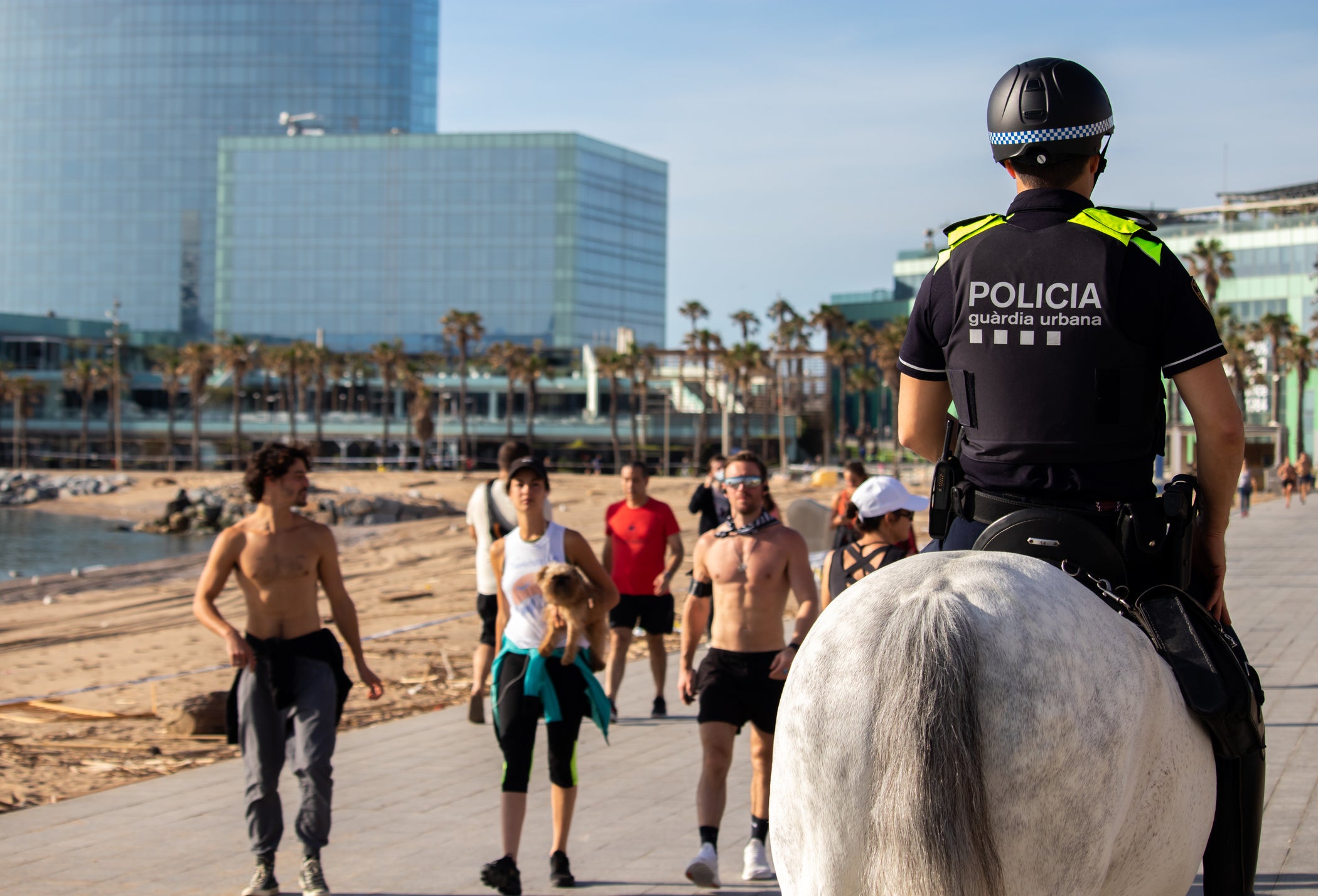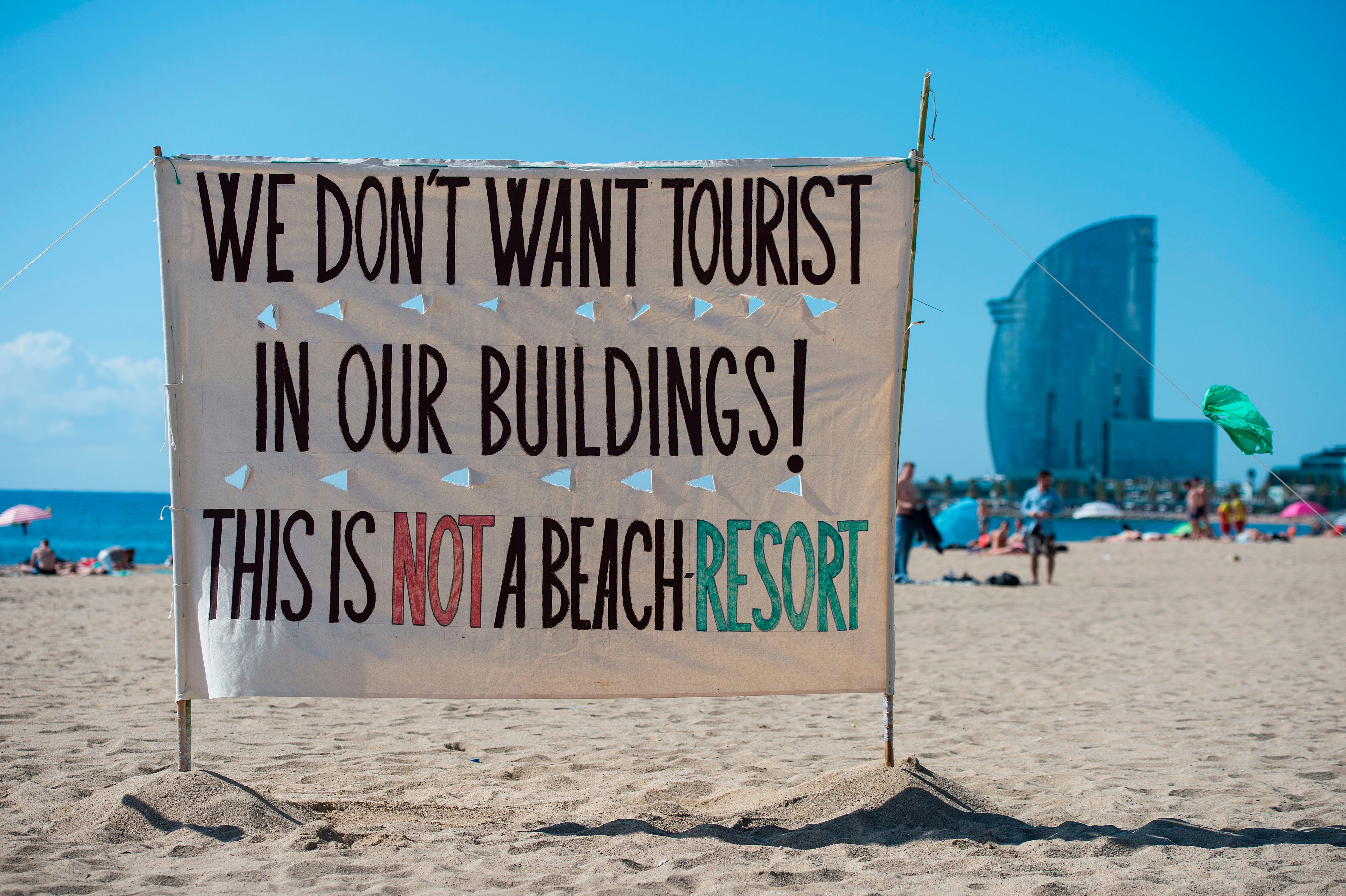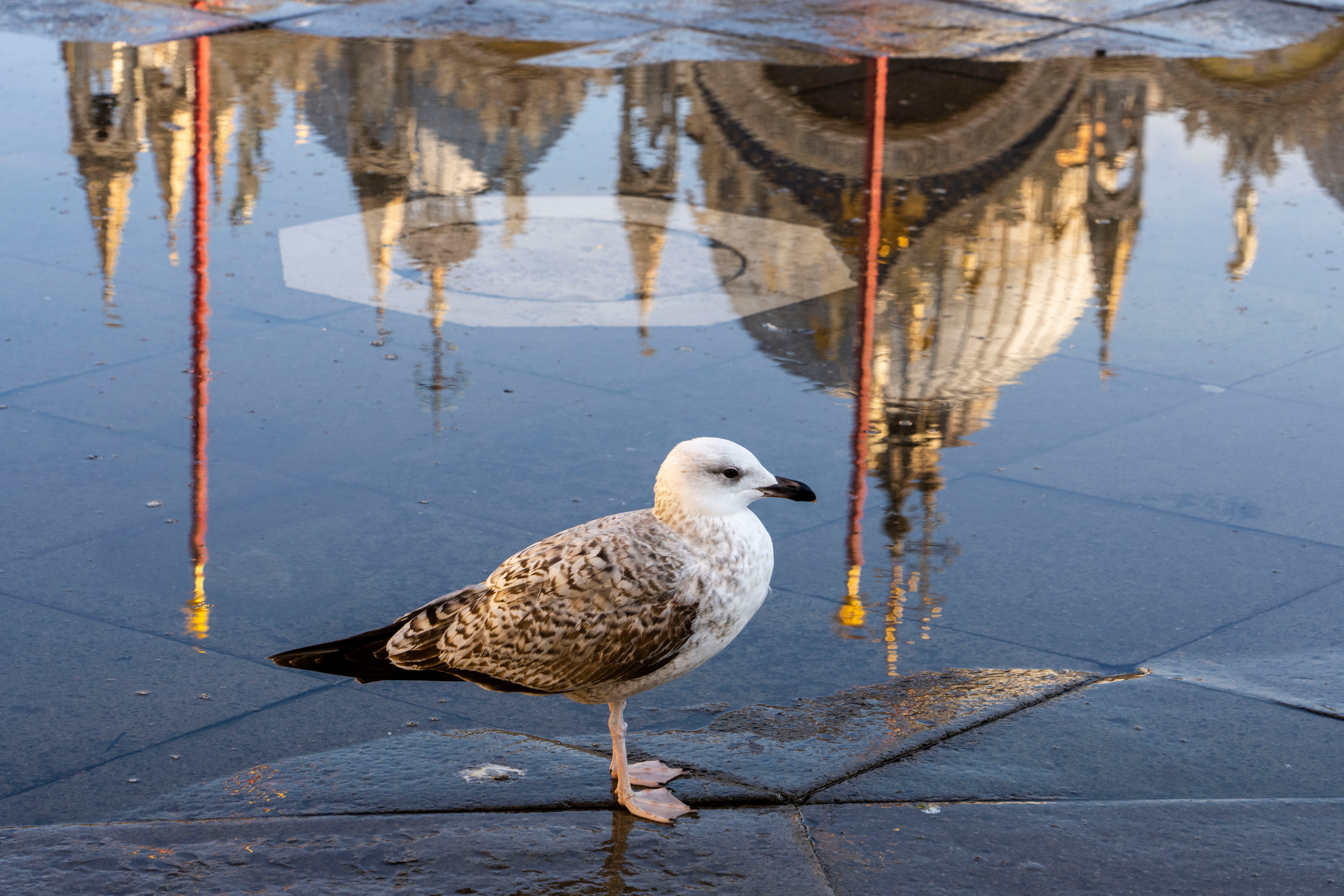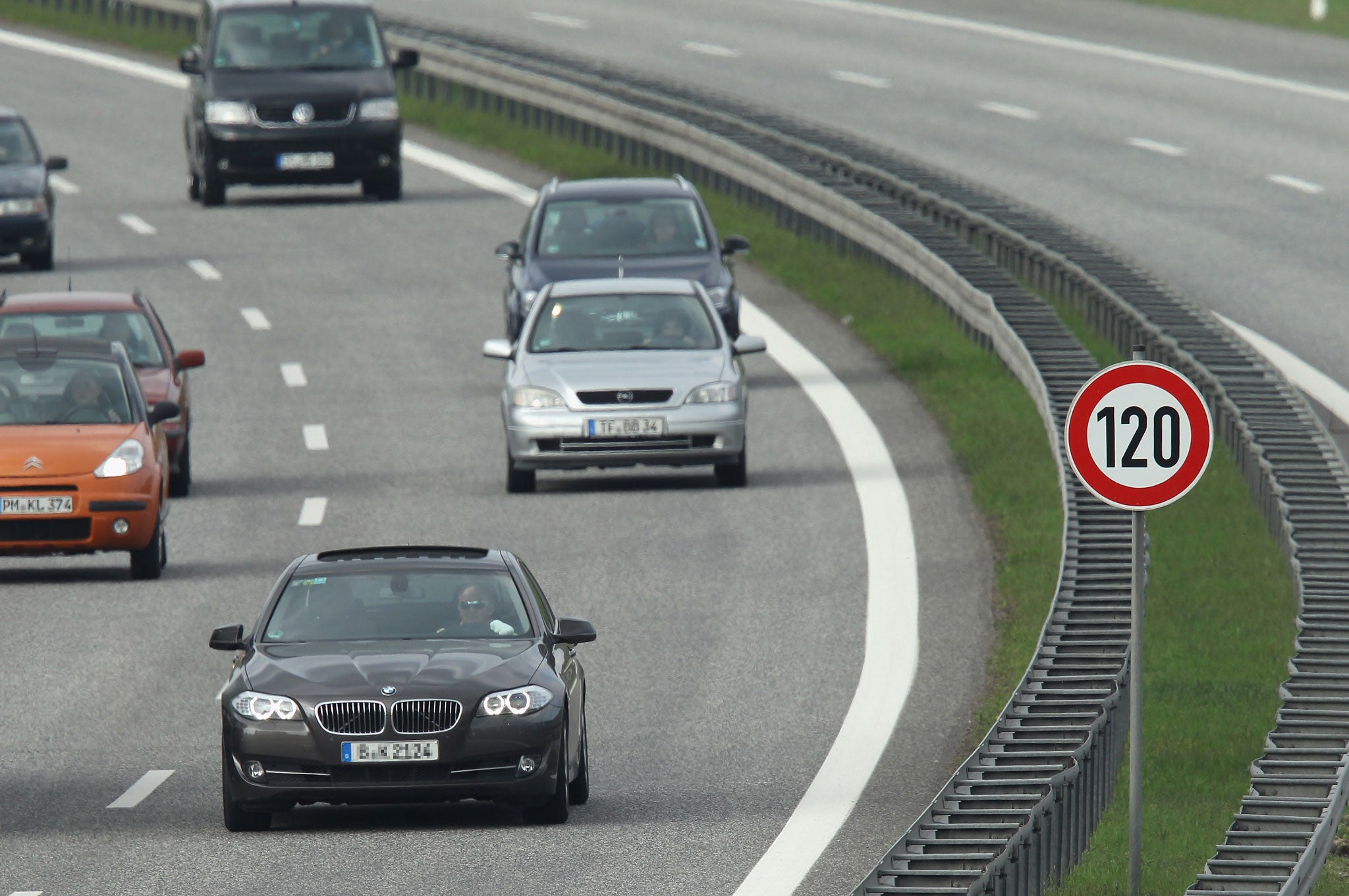The local rules that could land you in trouble on holiday
Whether you’re in Spain, France, Australia or the Middle East, local laws can land you in hot water before you even know what you’re doing wrong

Before travelling abroad, it’s always a good idea to do some research into your destination. From the airport bus routes to local tipping practices, it helps to be clued up on local customs, laws and traditions.
Even though locals – and, if you’re lucky, local authorities – are often more accepting towards tourists getting things wrong, there are many lesser-known laws in popular holiday destinations that can land visitors in trouble if they aren’t aware of them.
Not the sort of trouble that turn trips sour due to behaviour that’s obviously inappropriate, such as stripping off to pose beside sacred trees or smashing ancient sculptures, but innocent mistakes that could easily lead to issues.
Charles Hay, who was director of consular services for the Foreign, Commonwealth and Development Office between 2011 and 2014, said: “Every year British nationals find themselves on the wrong side of the law unexpectedly, resulting in fines or in some cases arrests or even jail sentences. It is important to remember that laws and customs can vary greatly from country to country and what may be perfectly legal in the UK could be subject to a fine or even a jail sentence in another.”
While the application of some such laws and punishments, such as those regarding jaywalking, can be inconsistent, it helps to know what to avoid to stop your summer holiday bills climbing with fines (or worse).
We’ve rounded up some of the more obscure and unknown laws from popular tourist destinations to keep you in the know during your visit.
Spain: Cover up and avoid using soap and shampoo on beaches
A little-known law in Spain requires people to cover up when walking on public streets. Although not really applicable to beaches, you can be hit with a fine of up to €300 if you don’t wear a shirt or walk around in just a bikini or swimwear.
On the topic of beaches, make sure you don’t use soap or shampoo when showering after being on the sand. Due to concerns over the impact of chemicals found in soaps on marine wildlife, doing so could result in a fine of €750.

Venice: Don’t feed the pigeons
In 2008, the mayor of Venice pushed through a ban on feeding pigeons in the city in a bid to try and control numbers and the spread of filth.
It had once been something of a tourist favourite to feed pigeons near some of the city’s monuments, such as St Mark’s Square. When the ban came into effect, 19 pigeon-feed sellers who had long been selling on the square immediately went out of business.
Fines for feeding the birds range from $80 to $775.

United Arab Emirates: Don’t eat or drink in public during Ramadan
Non-Muslim visitors to the UAE should know that during Ramadan – the Islamic month of fasting, prayer and reflection – it is prohibited to eat, drink or smoke in public during fasting hours (including chewing gum).
Eating and drinking is permitted in designated places such as restaurants, but those found eating or drinking in public could face up to a month in jail and a fine of 2,000 AED (just over £400).

United Arab Emirates: Don’t be drunk in public
In addition to specific laws during Ramadan, anyone visitng the UAE should be aware of the rules around drinking alcohol.
Although Islam forbids the consumption of alcohol, non-Muslim tourists are allowed to drink alcohol in bars and restaurants. However, drinking on the street it strictly forbidden, as is being drunk in public.
Fines can be up to 5,000 AED (roughly £1,000).
France: Be careful when taking pictures
In 2021, France passed a highly controversial law prohibiting the ‘malicious’ sharing of images that might identify operating police officers, whether by face or name.
The interior minister said the law would protect police from calls for violence online, but human rights groups and media organisations have criticised the law, saying that it curtails press freedom.

While you’re unlikely to be taking photos of police in action during your pose in front of the Eiffel Tower, it is important to be careful, especially if visiting during events such as the recent protests in Paris – you never know how your photo could be used or interpreted.
Germany: Don’t run out of petrol on an Autobahn
Although anyone driving in Germany will be likely be aware of the various laws, such as the prohibition on passing in the right lane, some may not be aware that it is technically illegal to run out of petrol on one of the nation’s famed Autobahn motorways.

Officially, it is illegal to stop “unneccessarily” while on an Autobahn, but running out of petrol is considered easily preventable and thus falls under this law. Stopping, reversing or making a U-turn are also forbidden.
Thailand: Respect the King
You likely don’t have particularly strong opinions on the Thai monarchy. Nevertheless, Section 112 of the Thai criminal code states that “whoever defames, insults or threatens the king, the queen, the heir-apparent or the regent shall be punished with imprisonment of three to 15 years”.

The penalties apply to multiple instances, so anyone guilty can be charged for each separate phrase or time they used an insult. According to the BBC, a man was sentenced to 70 years in jail for this in 2017.
Overall, prosecutions are fairly common – Human Rights Watch claims there were 400 prosecutions in 2010 alone.
Australia: Make sure you wear a helmet while cycling
In most Australian states, cyclists must wear a helmet when riding a bike unless they have a medical, cultural or religious reason not to. Designed to improve public safety, the fines for disobeying vary widely from state to state.
Breaking the rules will land you a fine of just $25 in the Northern Territory, but this can rise to over $650 in Tasmania.
Read about the best UK hotels
Join our commenting forum
Join thought-provoking conversations, follow other Independent readers and see their replies
Comments
Bookmark popover
Removed from bookmarks